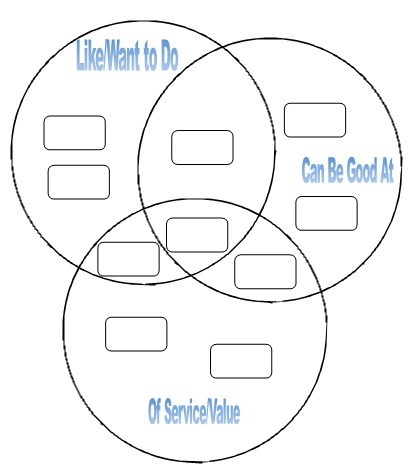This is another thing I wish someone had told me when I was younger.
This article will be most effective when considered along with my “target” career post — so take a look at that if you haven’t already had a chance. (Link provided below.)
Thinking About Your Career
You may think you are too young to start thinking about your career, but anyone in Middle School or older should really put some time into this. If you are younger, wouldn’t it be a lot more of a motivation while doing the hard work of school assignments if you had a goal (or several) that you were interested in?
If you are getting ready to enter college, wouldn't it be smart to invest the next four-to-ten years and $100K to $1M wisely? School work is even harder in college, so it really helps if you have an interesting career in mind while you are building up your graduation credits.
If you are already working, you are probably already on a career path. Nevertheless, you may be interested in making some intelligent adjustments since you probably still have 20 to 40 years of work ahead of you. You will certainly want to use this proposed methodology to determine your next moves or whether to take a certain promotion you are being offered.
Fundamental Questions About Your Career Choice
Here are three very important career-related question clusters you should be asking yourself:
Motivation: What motivates me? What seems interesting? What am I passionate about? What things do I like to do — and why? What would I want to do if I could spend my time doing anything I wanted to? What seems like play to me that seems like work to others?
Abilities: What things am I good at or what can I become good at? What comes somewhat natural to me? Where do I seem to have an advantage? Of these, which one or two am I willing to put the time, effort and money into to become an excellent professional?
Service: What might I do that could help others, help my family, and/or help me make sure I can take care of myself? A career that has a larger purpose than just making money will carry you through the tough times, boredom, and "burn out". What can I do that provides such value that people are willing to pay me for doing it?
VENN: Motivation, Abilities, Service
A VENN diagram is simply a visual way to think about things that intersect with others in some way.
If our case, I believe that you will find your career much more satisfying if you look for the intersection of motivation, abilities and service -- and then start brainstorming and researching for possible career choices.
If you find that you have many options, consider it a positive. Focus on the best few. The graphical representation of this is as follows:
The overlap (intersection) where all three circles come together is the “sweet spot” for your career. While this is depicted as only one “box” above, there may, actually, be many careers that fit the combined criteria of motivation-abilities-service.
Japanese Version Which Adds Pay/Money: Ikigai
While making money is important for almost all of us, I didn’t include a separate circle for this because (1) you should at least start your career explorations based on looking at what you like to do before focusing primarily on the pay, (2) some truly rewarding careers just don’t pay all that well, and (3) the money will generally take care of itself if you are good enough at something that provides a service to others.
However, there is a well-known version of this VENN diagram promoted in Japan which does include “what you can be paid for”. There are many books written about “ikigai” if you are interested in doing more reading about this — but I think this article should be enough to make the point. Here’s a depiction of “ikigai” that may be useful to you:
Image above from Wikimedia by Nimbosa derived from works by Dennis Bodor (SVG) and Emmy van Deurzen (JPG)
Feel free to use either the three or four circle VENN diagram — whatever works best for you. My only warning about “ikigai” is that you may not be very satisfied with your career if you let the “what you can be paid for” circle get too much weight up front. My idea is that you find what fits the motivation-abilities-service center first and then start looking for the jobs that meet your financial requirements. If “pay” gets too large of a weight up front, few would be a schoolteacher, missionary, youth minister, stay-at-home mom/dad, etc.
Next Steps and Summary
With one of the VENN diagrams in mind, you may need to start looking at the world of possible careers to find a “fit”. You can always ask others in your circle, but you may find that they have limited perspectives. You can open up new horizons by spending time on some of the websites linked to at https://internationalstudentsvc.org/student-resource/list-of-career-research-websites/ — or many others like https://bigfuture.collegeboard.org/explore-careers.
Next, as mentioned in my introduction to this post, I have previously posted an article on the “target” concept of “ideal vs. related options”. I highly recommend that you scan this (link below).
Finally, go back through this process a few more times to see what shakes out. Just doing it once will be positive, but tuning it via a few iterations will be much more effective.
Careers and the "Target" Idea
Target Thinking and Your Plan One of my friends and former employees (Joe Rogers) used to say, “If you don’t have a plan you’ll end up working someone else’s plan.” As an example, one of my high school students once said he wanted to be an architect. His friend came into class all excited one afternoon and said they were hiring workers at a chicken proce…






